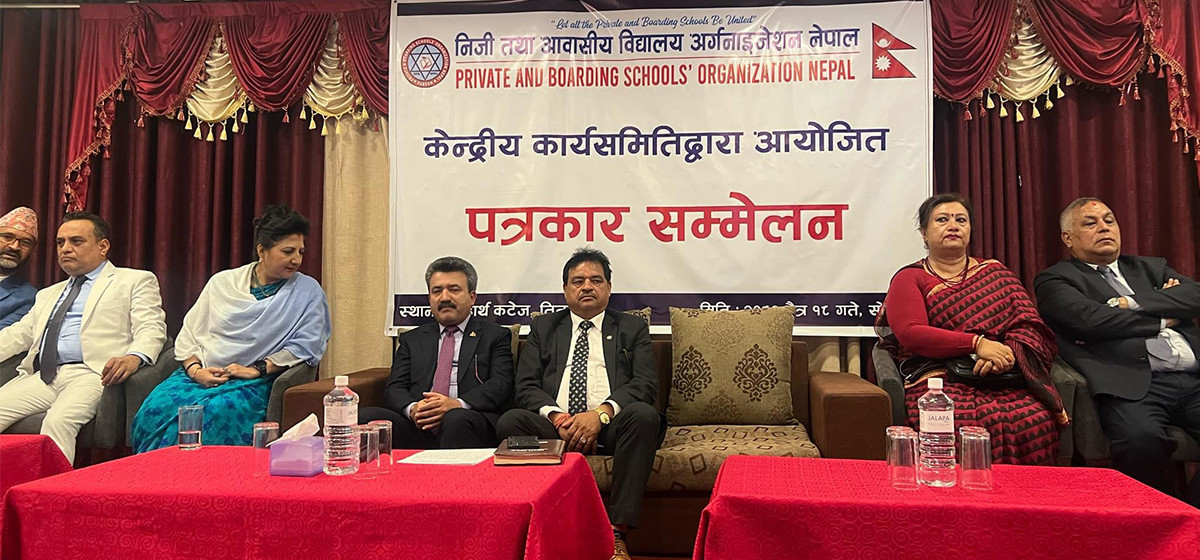
The newly elected executive committee of the Private and Boarding Schools' Organization Nepal (PABSON) has decided to continue operating existing private schools under the company model.
At the 16th National Convention held in Kathmandu on Falgun 26 and 27, a new executive committee was elected under the leadership of Krishna Prasad Adhikari.
During a program held on Monday, President Adhikari presented his three-year educational reform policy and agenda. He stated that within the next three years, the committee will advocate for maintaining the company-based operation of private schools through provisions in the School Education Bill.
“In the ongoing parliamentary discussions on the School Education Bill concerning the security of private investment in education, our three-year agenda includes making every necessary effort to retain private schools under the company model while creating a more investment-friendly environment,” said President Adhikari.
He added, “We are committed to gradually integrating teachers and staff of private schools into the Social Security Fund managed by the government, ensuring their employment benefits.”
President Adhikari also announced that the new policy and program include efforts to ensure that students receiving scholarships in private schools are also included in state-provided scholarships for higher education.
PABSON has committed to maintaining the quality of education provided by private schools, making it more relevant to current needs, and ensuring competitiveness at both national and international levels. To achieve this, the organization has released a 13-point policy and program that includes working with all three levels of government when necessary and promoting inclusive access to school education for all children.
“Currently, 2,370 private schools have already joined the Social Security Fund,” said President Adhikari. “Private schools must participate in the fund to retain qualified teachers and staff.”
He added, “Throughout my three-year term, I will continue encouraging all private schools to join the Social Security Fund gradually.”
PABSON’s Senior Vice President, Dipika Rimal Thapa, highlighted the need to address problems in various scholarship programs and to ensure that scholarships reach the intended groups and individuals. She emphasized that this is a current priority for PABSON.
“Our key task will be to coordinate with the concerned authorities to implement the Supreme Court's directive order dated Chaitra 14, 2080, which addresses the 45% reserved scholarships available for higher education,” said Senior Vice President Rimal. “Students studying in private schools have so far been excluded from these state-provided scholarships.”
She claimed that the state has created an unfair disparity between students from private and public schools. “PABSON will strongly advocate for implementing the Supreme Court’s directive. Private schools have so far been providing scholarships to around 200,000 students from target groups,” she said.
Outgoing PABSON President D.K. Dhungana emphasized that the state must guarantee the security of the six billion rupee investment in private schools. He expressed commitment that the PABSON executive committee will work with concerned public and private entities to help reduce the current trend of students going abroad for higher education and support policies that promote studying while staying in Nepal.
“Being aware of the recent decline in reading habits, we will run special programs to encourage a reading culture,” said Dhungana. “PABSON will focus on developing and implementing quality assurance standards for private schools.”





